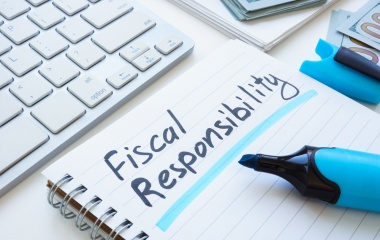
As the financial markets continue on their wild rides analysts form all walks of life continue debating the causes which led to the meltdown hoping to be able to prevent the next one. Sub prime mortgages, lack of regulation, regulation forcing banks to lend to unworthy clients, high oil prices, low interest rates, real estate prices that rose too high too fast – the list of causes seems to grow daily. People previously viewed as champions of free enterprise are today vilified for lax oversight.
While these factors existed a few short months ago when markets were flirting with all time heights, no one seemed to notice until it was too late. The growing middle class of China, low interest rates and the like were going to keep the world economy on fire for year to come and investment bankers and brokers – some of whom are now unemployed – continued to urge investors to pour money into the markets.
While economic cycles have been the norm since at least the time of Joseph in Egypt people intuitively understand that we are not truly dealing with an economic crisis but rather a moral one. Greed, excessive materialism, hubris, jealousy are amongst the deeper causes of the current upheaval.
Time magazine recently ran a story in which they interviewed two leading Jewish “ethicists” who describe how the implementation of Jewish law and values in the marketplace could possibly help prevent much of the upheaval we are witnessing. What is most interesting is that a secular magazine would see merit in such an argument.
A central theme throughout Jewish thought is that holiness can be found in the most mundane of activities. This is especially true regarding our business activities. The modern worker has the potential to sanctify G-d’s name on a daily basis demonstrating not only honesty, integrity and sensitivity but modesty. In a generation in which conspicuous consumption is a central feature of marketing it is even more crucial that we recognize that money is only a means to an end. Conspicuous consumption is apparently no longer in vogue, as the super wealthy recognize the poor taste of flouting their “success” in the current environment – a modest positive side effect of the current crisis.
Rav Shimon Schwab z”l, leader of the transplanted German community after the war commented that only in America did he encounter the notion of making money as a goal in of itself – in the German milieu of Torah im derceh Eretz (Torah and worldly wisdom) in which he was raised the making money was important as a means towards leading a full Jewish life.
Among the sacrifices the Torah mandates is an oleh vyored, literally up and down. Unlike other sacrifices where the actual sacrifice is fixed for all, the oleh vyored varies depending on the economic situation of the one bringing the sacrifice; the wealthy
bringing animals, the less so birds and the indigent flour. The Sefer HaChinuch (the classic compilation and explanation of the 613 mitzvot) notes that a poor person who brings the sacrifice designed for the wealthy would not fufil their obligation. Living beyond ones means is prohibited no only in the “secular” world but in the “religious” one as well.
Rav Efraim Lunshitz (16 century Poland) has a fascinating (even if debatable) explanation as to why the Torah (in theory at least) prohibits the charging and receiving of interest. He explains that having a steady fixed and guaranteed stream of income without actually doing any work diminishes our ability to see G-d as our material provider. It is best to have some degree of uncertainty regarding our financial future in order so that we remain focused on our Divine provider.
Comments to Rabbijay@torahinmotion.org



